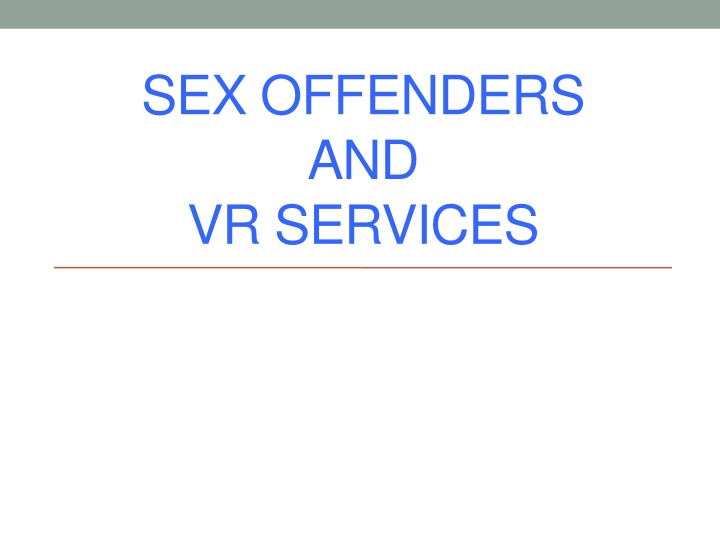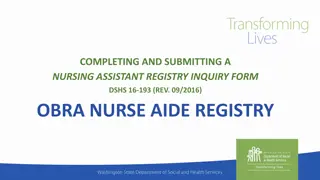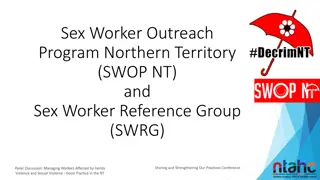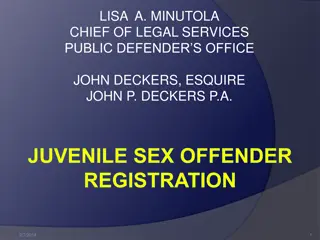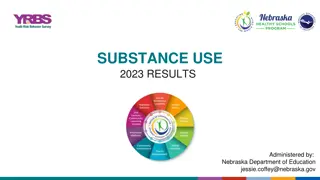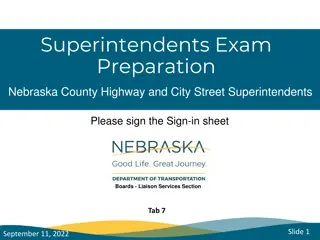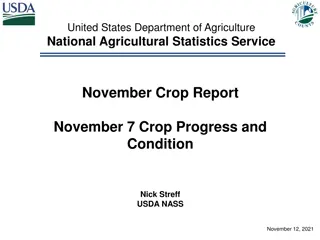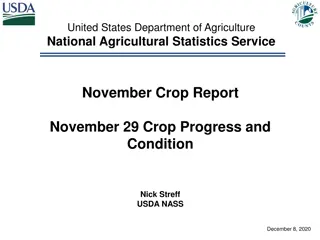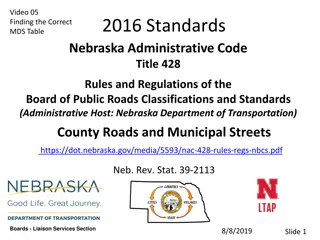Nebraska Sex Offender Registry Laws and Myths
In this informative piece, explore the Nebraska Sex Offender Registry laws and debunk common myths surrounding sex offenders. Learn about registration goals, reporting guidelines, and key misconceptions. Gain insight into the complexities of sex offender policies and laws in Nebraska.
Download Presentation

Please find below an Image/Link to download the presentation.
The content on the website is provided AS IS for your information and personal use only. It may not be sold, licensed, or shared on other websites without obtaining consent from the author.If you encounter any issues during the download, it is possible that the publisher has removed the file from their server.
You are allowed to download the files provided on this website for personal or commercial use, subject to the condition that they are used lawfully. All files are the property of their respective owners.
The content on the website is provided AS IS for your information and personal use only. It may not be sold, licensed, or shared on other websites without obtaining consent from the author.
E N D
Presentation Transcript
SEX OFFENDERS AND VR SERVICES
Goals of Discussion Gain a firm understanding of the Nebraska Registry Law Understand how NVR Sex offender policy and SOR law coincide Develop insight related to case scenarios Obtain further strategies for job placement
Myth # 1 Juveniles convicted of a sexually based crime are required to register. Unless they are found guilty in adult court or they are an offender who enters the state and is required to register as a sex offender under the laws of another village, town, city, state, territory, commonwealth, or other jurisdiction of the United States.
Myth # 2 There are restrictions as to where a Sex Offender can live. It is not a state-wide law! Only to those cities or designated entities that pass such an ordinance which only applies to schools and daycares. It is up to the local agencies to enforce restrictions if adopted. This ONLY applies to sexual predators that moved to a reported address after July 2006.
Myth # 3 Sex offenders have many restrictions including where they can work and attending certain events. The Nebraska Sex Offender Registration law does not have any restrictions on registered sex offenders.
Myth # 4 Most sex offenders reoffend. Reconviction data suggest that this is not the case. It is noteworthy that recidivism rates for sex offenders are lower than for the general criminal population.
Goals of Registration deterring offenders from committing future crimes; providing law enforcement with an additional investigative tool; and increasing public awareness
REPORTING GUIDELINES: effective Jan 1, 2010 All offenders will be required to register in 3 days at a Nebraska State Patrol location or designated law enforcement agency with AFIS (automated fingerprint systems) or prior to release from incarceration (local or state). In addition to the current registration data collected, the required information will also include: ALL addresses that he or she lives or frequents All employment locations All school information Travel & immigration documents Professional licensees or certificates Remote communication device identifiers/addresses Email addresses, chat room id, etc Signed consent form to search (if 6 or 7 is provided) DNA sample Palm prints in addition to fingerprints
REPORTING GUIDELINES: effective Jan 1, 2010 All registration changes will take place in person at the sheriffs offices. The offender must report any change in residence/temporary residence, employment, or school on an approved form (NSP792). New Registration Duration Under the old law, offenders had to register for 10 years or life. The registration duration period will change to 15 years, 25 years or life as follows under the new law effective January 1, 2010 and those changes will apply to all sex offenders currently registered and those who were previously registered
REPORTING GUIDELINES: effective Jan 1, 2010 15 YEARS not punishable by imprisonment for more than one year 25 YEARS punishable by imprisonment for more than one year LIFE punishable by imprisonment for more than one year and was convicted of an aggravated offense or had a prior sex offense conviction or has been determined to be a lifetime registrant in another state, territory, commonwealth, or other jurisdiction of the United States
Federal Requirements Wetterling Act Megan s Law The Pam Lychner Act 1998 Amendments National Sex Offender Registry Adam Walsh Child Protection and Safety Act
VR Sex Offender Policy Discussion Points: When is it best to discuss the nature of a criminal record? What can help prompt a client to disclose if he/she has a sex offense? A client needs to be compliant with the registry in order to receive VR services. T/F What are Employer Suitability Factors and how can they be used in career planning?
NVR Case Scenarios Post Secondary goals: Education, CNA, IT Support it? A client gets employment without VR direct placement and advocacy and requires retention services provide or not? Self employment goals considerations? Others??
Career Planning & Placement Strategies When client is under community supervision: using treatment plan and relapse triggers to assist in decision making JSS: discussing how to disclose the offense on an application and in an interview Using registrant information in career planning to identify employer suitability factors Others?
